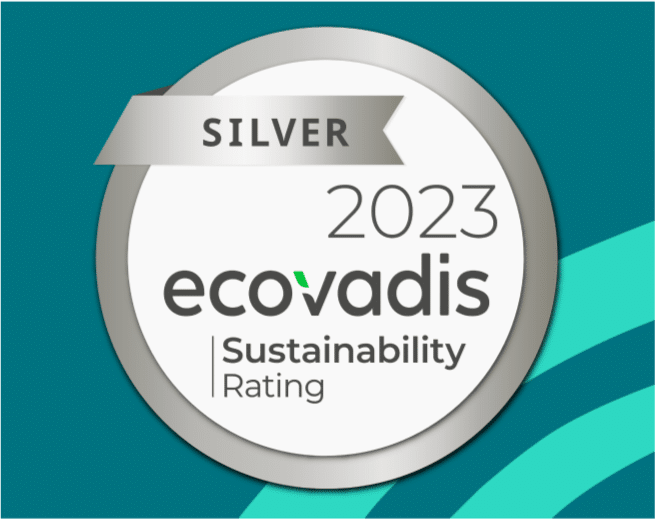France – 21 April 2023 – Last night, Webhelp received a special mention from the Jury for the ESG Risk Category at the 2023 EY Risk Transformation awards. This recognizes Webhelp for its global Impact Sourcing efforts that both create rewarding career opportunities for disadvantaged communities, and form part of a robust risk mitigation strategy to attract talent. Hanae Chino, Group ESG Strategy Director for Webhelp, writes here about the progress of this groundbreaking initiative in the wider industry, and why it makes commercial sense to include it as part of a balanced approach to win war for talent.
Impact Sourcing is a socially-responsible approach to finding, hiring and training people who might otherwise be excluded from the formal labor market. It creates win-wins both for global enterprises and the communities involved.
The name originates from the ‘impact’ that blue-chip brands often expect to make from sourcing talent into their business, but the term is much wider than that. It references the larger ‘impact’ that getting recruited and trained into a new career can have on the previously-marginalized people who get hired.
What impact does Impact Sourcing have?
In the era of the war for talent, impact hiring is a way to build your own workforce of highly-skilled, highly-motivated people. At Webhelp, we recruited 11% of our people in 2022 using impact sourcing (and we’re on track to do even better in 2023). We’ve seen for ourselves the effect of giving talented, hard-working, motivated people the opportunity of a professional career, and the real, positive change it creates.
I’ve frequently met with business leaders around the world to share best practice and discuss how to continue moving from business rhetoric to business reality and effective partnerships. Often, a key area of reflection is why our industry hasn’t yet seen more uptake of impact sourcing.
BPOs have a role to play to educate and raise awareness of the benefits of impact sourcing. We must bring our clients on the journey with us too, from initial conversations about the initiative through to advice and guidance on implementation for their business.
The barriers affecting Impact Sourcing
Impact sourcing isn’t new. The Global Impact Sourcing Coalition (GISC) was founded in 2016. Launched in Johannesburg, South Africa by more than 20 founding organizations, the GISC set out with the mission to build more inclusive global supply chains through advancing wide-scale adoption of Impact Sourcing.
By the time it was wound up in December 2020, GISC had grown to include over 75 member companies and stakeholders from over 30 countries worldwide. It’s definitely arguable that despite all the progress that’s been made, there is still a need to tackle the barriers holding back some businesses from engaging with impact sourcing and its true potential for their business.
There’s a disconnect around training. While there are plenty of NGOs and local organizations able to step up and deliver work-readiness training to prepare people for the labor market, they need to find companies who want to hire those trainees. There is the will to make it work, but the complexity of the ecosystem needs to be tackled and simplified.
Impact sourcing can be seen as a risk. There may still be inherent bias that leads recruiting departments and managers away from the unknown, towards experience. Why, bias suggests, would you hire the least experienced people to do the job, when you can eliminate that risk by hiring someone more experienced? There is also cultural bias at play too, for instance against candidates such as asylum seekers. Add into this mix doubts about whether potential hires will be around for the long term, and whether they’ll be able to fit in. All this bias, whether conscious or unconscious, affects hiring decisions.
Language can be a barrier. The language challenge is something I hear often. Working with global clients, all training is done in English, and candidates who have long been excluded from the labor market can sometimes find this challenging. The importance of mastering at least B2 English, if not C1, is hard to overstate.
So how do we get people up to speed in the essentials – the reading, listening, the writing and speaking? It doesn’t feel like this one has been cracked yet across the board, and while it will require investment, it will make a huge difference.
Recently, in South Africa, from an intake of 724 impact hires in the lead up to peak period, after 6 months, the results were astounding.
- Retention – 95%
- Training pass rate -100%
- Speed to competence – 3 months (equivalent to BAU advisors)
- Absence lower by 7%
So how can we remove these barriers and improve implementation?
Given these barriers still exist, what can be done to educate industry and improve implementation? Here are a few thoughts:
We still need to raise awareness about what we’re doing… Our own Customer Experience industry has so many valuable skills to pass on to any new employees, but there is still confusion about exactly what impact sourcing is, impact hiring, the benefits, the case studies…
Companies need to invest in strengthening their training and educational networks. The right training partners can bring new hires up to speed. In Spain for example, we partner with a company called MigraCode, a European network of code schools made possible by various nonprofit organizations. MigraCode trains migrants in tech skills and we lend them our office meeting rooms at night so they can run training sessions there.
Bringing partners into our offices like this and nurturing those contacts with our managers, as part of a network of partnerships ready for both sourcing and training, brings the benefit of normalizing impact hiring in a business, so it can be actioned all year long as part of business-as-usual rather than solely for dedicated projects.
The infrastructure must be in place for new employees. There’s more to consider, when hiring people who might be on the margins of society, when they first start working for a company. Indeed, you might need to think about how people will get to and from work, consider any adjustments to their workstation, or whether they need a work buddy because it’s their first experience in the formal sector, and so on.
We are doing this in Greece for example, where Webhelp is a guarantor for our people hired through impact sourcing. If you’re an asylum seeker, you might not have a birth certificate or other ID paperwork that you would usually have, so we are stepping in to help certify those people to work.
Impact sourcing can be transformational
An impact sourcing program can help companies on their journey to creating a more diverse, equitable, and inclusive workplace. They get to tap into a huge, motivated pool of talent, all of which helps to create and drive value and competitive advantage. There’s also the opportunity to make a real, lasting difference to something beyond a bottom line. At Webhelp we are proud to be on the frontline of this innovative, potentially life-changing, people-centric initiative. If you’d like to find out more or talk about any of the points raised, please get in touch.





